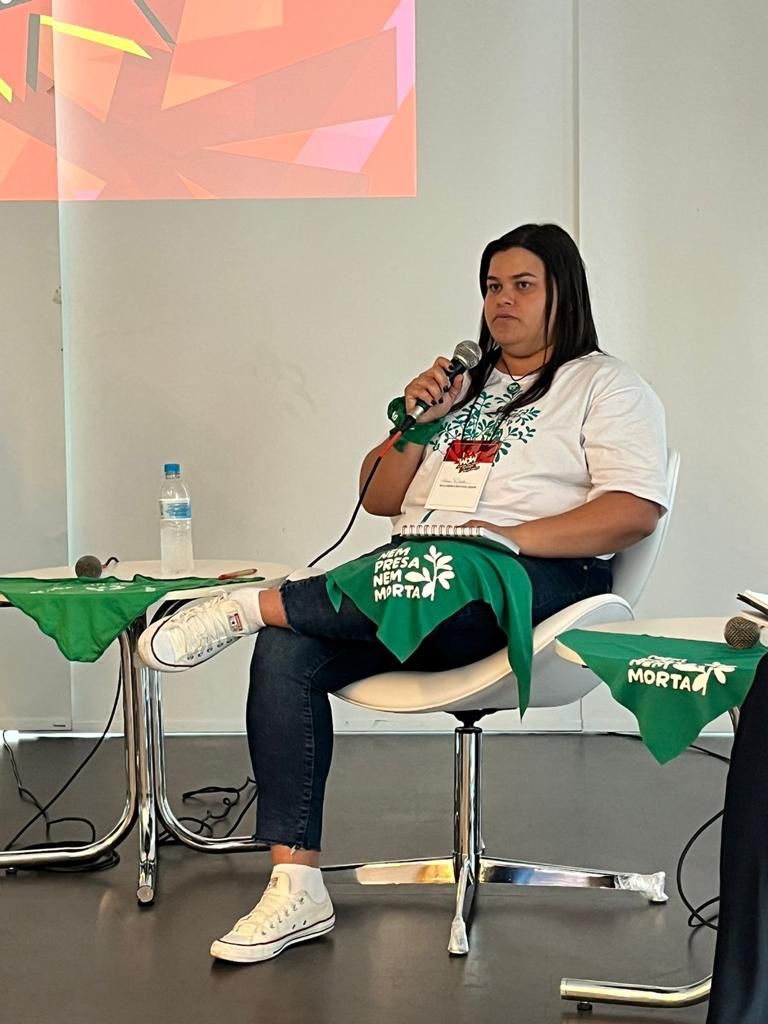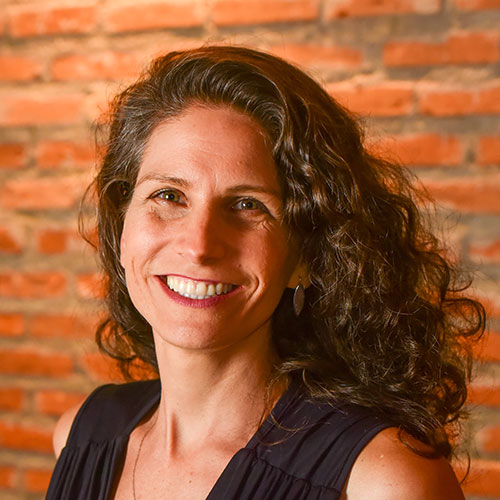#8M: Projeto Vivas ensures legal and safe abortion for women across the country
Termination of pregnancy is permitted by law in Brazil in three specific cases, with no gestational time limit. However, the procedure is still taboo and often denied, despite legal guarantees


In Brazil, abortion is considered a crime, however, three exceptions allow the termination of pregnancy legally: when the pregnancy is the result of rape, in cases where the mother’s life is at risk and when the fetus does not have a brain. In these cases, there is no time limit for having an abortion. Even so, the procedure is still denied to many women.
The Projeto Vivas arises in this context and aims to ensure that the right to legal abortion is respected. Founded in 2020, the project serves women across the country, referring them to reference hospitals, both in the public and private systems. When necessary, they refer the woman to terminate the pregnancy in neighbouring countries.
“Every day, around 20 new women arrive looking for a legal abortion. We already sent 250 women to Argentina last year and treated 247 cases here in Brazil. There are also many cases of women who come to us, however, they prefer to resort to illegality”, points out lawyer Rebeca Mendes, founder of Projeto Vivas.
Sexual violence
Rebeca warns that many health professionals make access to legal and safe abortion difficult due to a lack of information. Victims of rape, for example, do not need to file a police report, undergo a forensic examination, or obtain judicial authorization to be entitled to the procedure. Just go to a reference hospital, report what happened and request an abortion.
It is important to highlight that rape can occur even within supposedly consensual relationships. “If you are under the influence of alcohol, drugs, medication or sleeping, have had sex and become pregnant, according to the law you are considered vulnerable and this constitutes sexual violence, regardless of whether it was consensual or not. The same goes for sex with girls under 14. It doesn’t matter if it was consented to and if the relationship was authorized by those responsible to happen, according to the law it is sexual violence”, points out the lawyer.
She points out that many women are led to believe that they are responsible for the violence they suffered and that this guilt makes them prefer to cover up the case rather than report it. “It is difficult for women to see themselves as victims of sexual violence, due to several factors. We know it’s normal to drink, but drinking and being abused is not,” she says.
“Girls aged 12, and 13 arrive at the hospital pregnant and there is no investigation. They are not even given the information that they have the right to a legal abortion, they are directly referred to prenatal care”, she denounces.
Gestational time
The Decreto-Lei Nº 2.848, de 7.12.1940, which governs abortion, does not make reference to gestational time. Rebeca explains, however, that the Ministério da Saúde issued a Norma Técnica in 2005, which defines abortion as “the interruption of pregnancy up to the 20th-22nd week and with the product of conception weighing less than 500g”.
“They began to use this technical standard as if it were law to deny access to abortion in pregnancies over 20 weeks. The Ministério da Saúde itself, however, spoke out last year saying that it should not be done. Even so, they continue to use the rule to deny the procedure”, says Rebeca.
According to her, every federal hospital should be able to handle these cases. In practice, however, the law often does not work. “In São Paulo, for example, when the city closed Cachoeirinha, a reference in legal abortion, women started to be sent to another hospital where the entire team was on vacation. So they needed to go to a third hospital, where health professionals were asking for judicial authorization, police report, IML report… The woman who seeks this service is fragile, in need of reception, but ends up encountering many rights violations”.
According to the lawyer, to access legal abortion in the case of rape, the woman only needs to report the situation of violence to the health professional and the gestational time is in accordance with the date of the reported violence. Up to nine weeks, there is the possibility of an abortion being carried out medically at home. “Nothing prohibits taking the medication at the hospital, taking it home and carrying out the procedure,” she says.

Projeto Vivas
The project emerged after Rebeca Mendes had an unprecedented initiative in Brazil. A single mother of two children, she was studying law and working a temporary job when she found out she was pregnant for the third time. Given the difficulties she would face, she decided to terminate the pregnancy. However, she didn’t want to do it clandestinely.
So, she appealed to the STF, asking for access to legal abortion based on the argument that carrying the pregnancy to term could put her life at risk. The Supreme Court denied it. With the exposure of her case in the media, however, she became known throughout Latin America and women’s rights activists took her to Colombia, where she was finally able to terminate her pregnancy through a legal procedure.
“Colombian legislation was very similar to that of Brazil at that time, the difference was that there was an understanding that the risk for women was not only life-threatening but psychological as well. I completed the procedure in just over 20 minutes. When it ended, the only thing I felt was relief that it was over and a tiny bit of happiness that I had managed to satisfy my desire”, he recalls.
Legal and safe abortion
Rebeca says that she suffered a lot of persecution during the exposure of her case in the media. “A person I had never met in my life said that because my story was public, she felt entitled to come to my house and say that her sister had an unsafe abortion and developed schizophrenia, that I would regret it, and that if I changed my mind, she would give me a layette. This type of harassment was constant. People offered me layettes, basic food baskets, said they were going to find a place for me to live with the church pastor, that I could live at the back of the church”.
She emphasizes that people who resort to abortion are not reckless, they are just making decisions about their own lives. “Abortion is a health procedure. Without trauma, sadness or despair.” For her, the difficulty in guaranteeing contraceptive methods also harms women.
“I was an ordinary woman, who went to college, raised my children alone and lived on rent. And, at the beginning of 2017, I was taking the contraceptive injection every three months and decided to switch to the IUD, because I wasn’t feeling well with the injections. I went to get support at the health centre, I thought it would be quick, but it took a while for the day of the appointment to arrive,” she says.
“I was seen and learned that to insert the IUD I needed to first go through family planning, undergo a series of exams, ultrasound, etc. When I finally got the date to do the ultrasound, I was already returning from Colombia, where I had the abortion. In other words, I waited the whole year to have access to a contraceptive method and, in the meantime, I ended up getting pregnant”, she warns.
Want to support this cause?
Projeto Vivas is a non-profit and needs donations to continue operating! Find out more on the website or follow social media on Instagram and Facebook.



